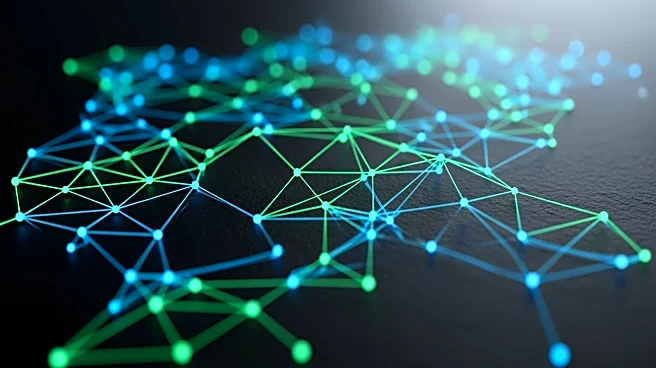What's Happening?
Activists worldwide are increasingly using decentralized communication networks to organize protests and resist government censorship. These networks, which include platforms like Discord and Pocket Network,
allow protesters to communicate and coordinate despite internet shutdowns and surveillance. In Nepal, for example, Gen Z protesters have utilized Discord to debate political issues and organize demonstrations, bypassing traditional channels. Similarly, the U.S. saw the '50501' movement, which coordinated protests across all 50 states using decentralized channels to oppose certain policies.
Why It's Important?
The rise of decentralized networks in protest movements signifies a shift in how activists can operate under oppressive regimes. These networks provide a means to circumvent censorship, allowing movements to sustain themselves and amplify their messages globally. This development poses challenges for governments attempting to control information flow, as decentralized systems are difficult to shut down. The use of such networks also raises questions about the balance between empowering democratic movements and preventing misuse by extremist groups.
Beyond the Headlines
While decentralized networks offer significant advantages for activists, they also present ethical and legal challenges. These platforms can be exploited by extremist groups and misinformation networks, highlighting the need for careful consideration of their use. Additionally, the reliance on centralized infrastructure by some 'decentralized' platforms underscores the complexity of achieving true autonomy in communication. As these technologies evolve, they will continue to shape the landscape of digital activism and government responses.









